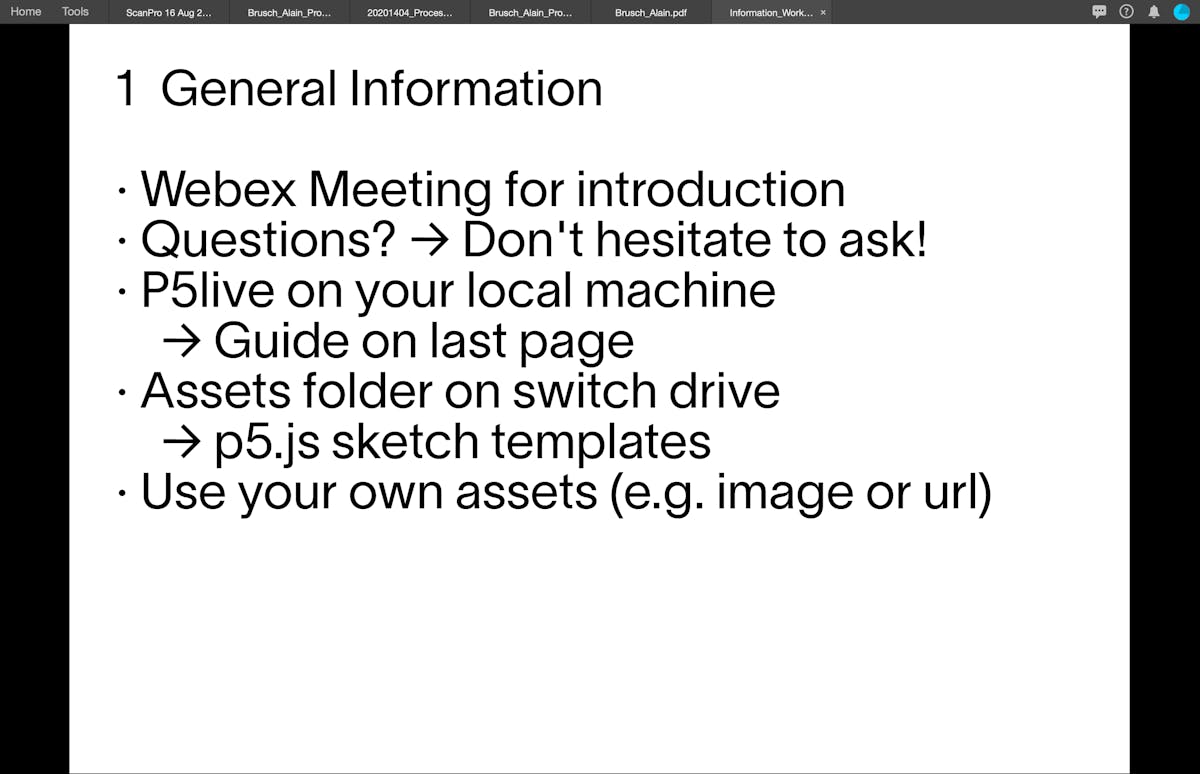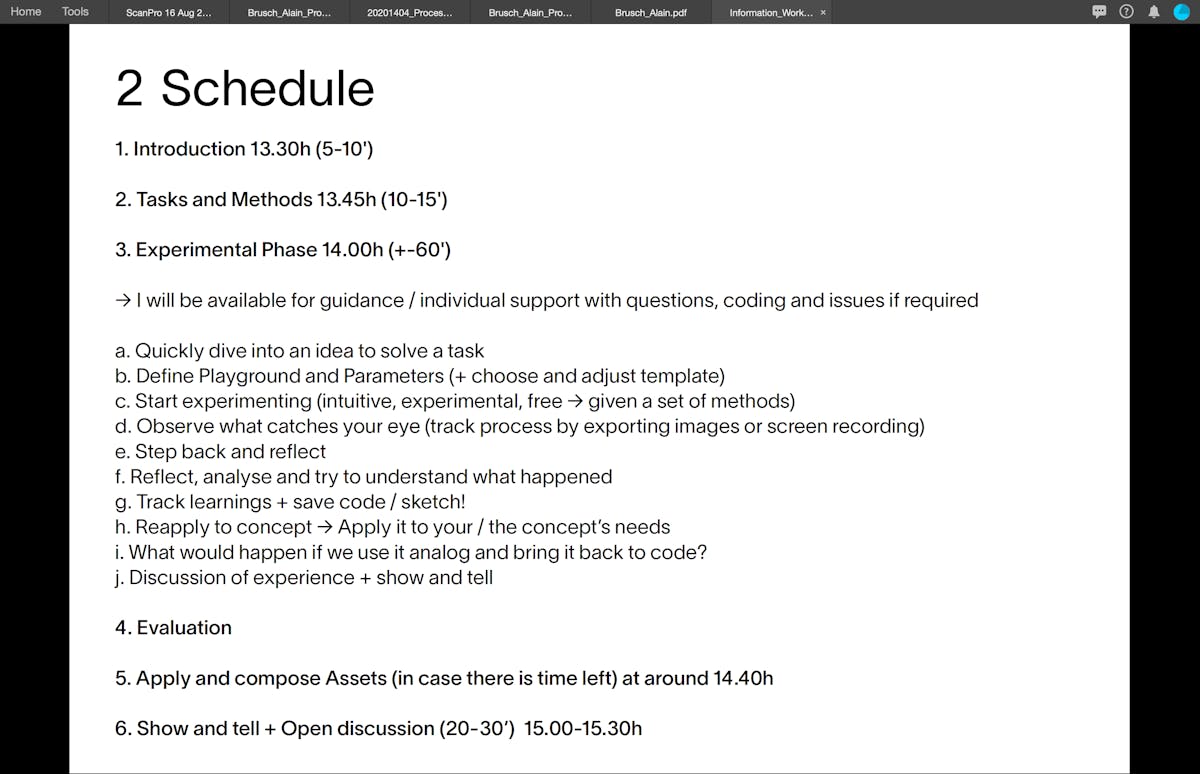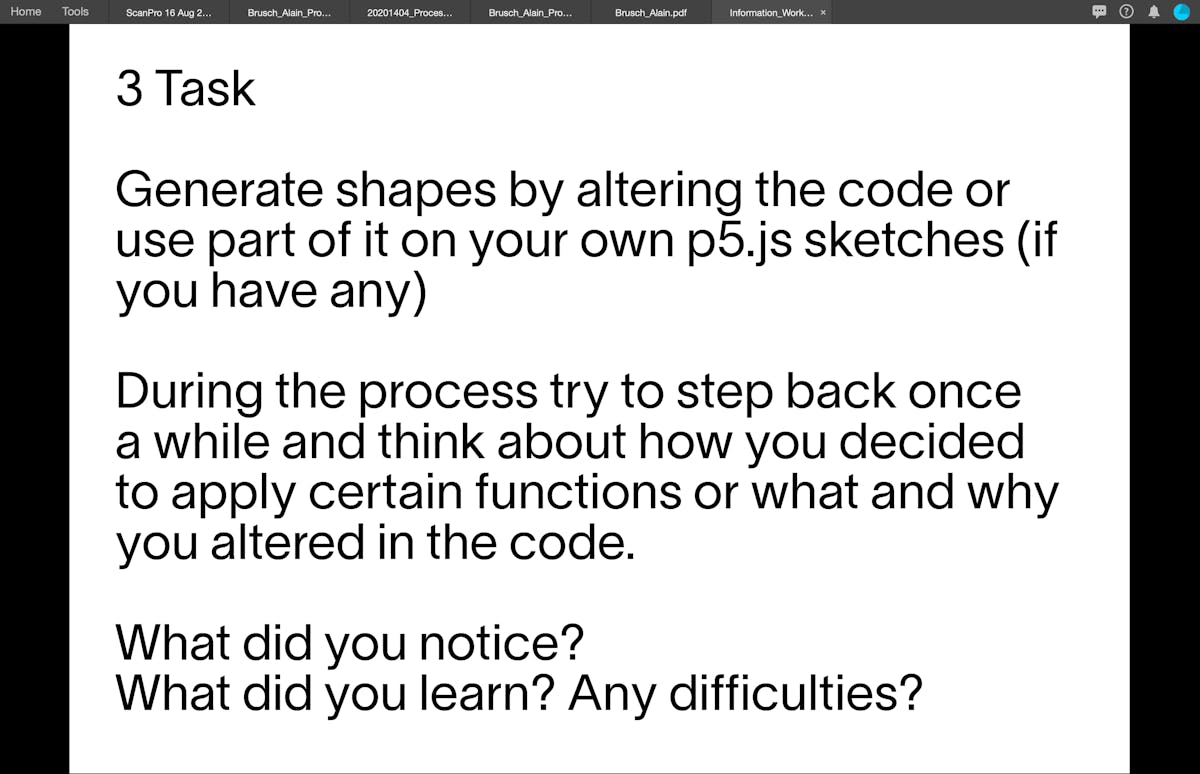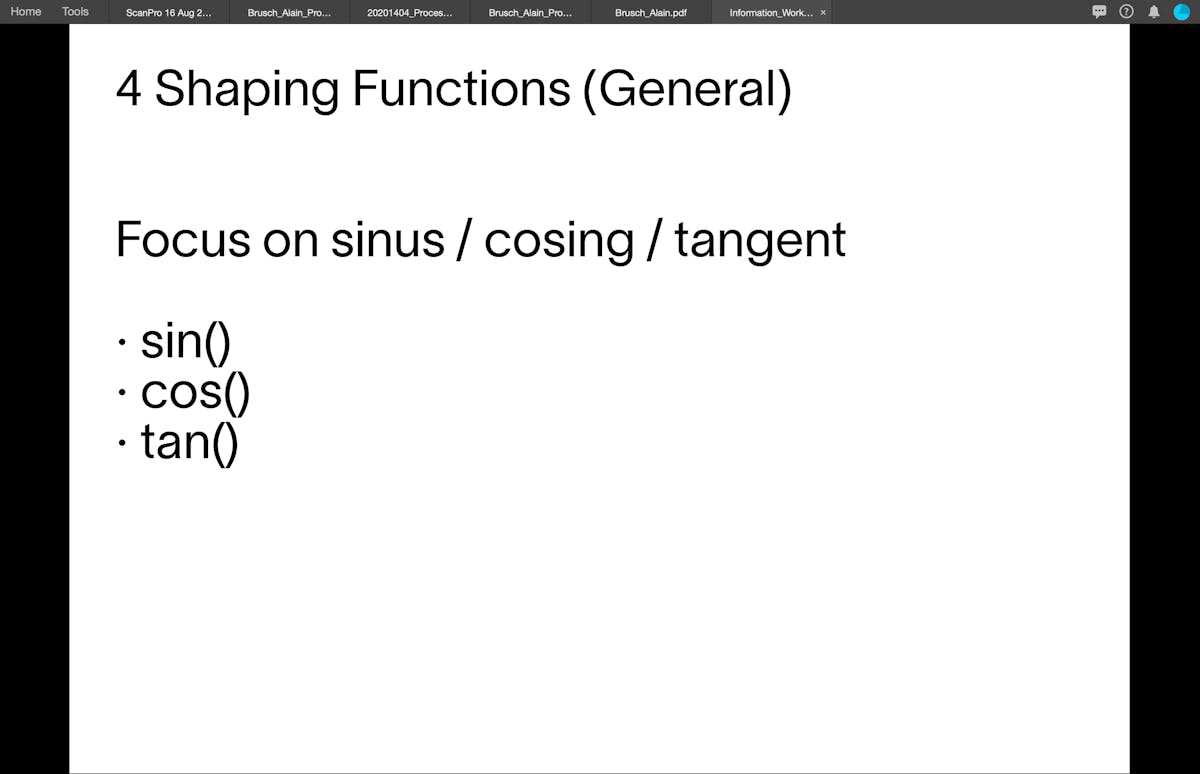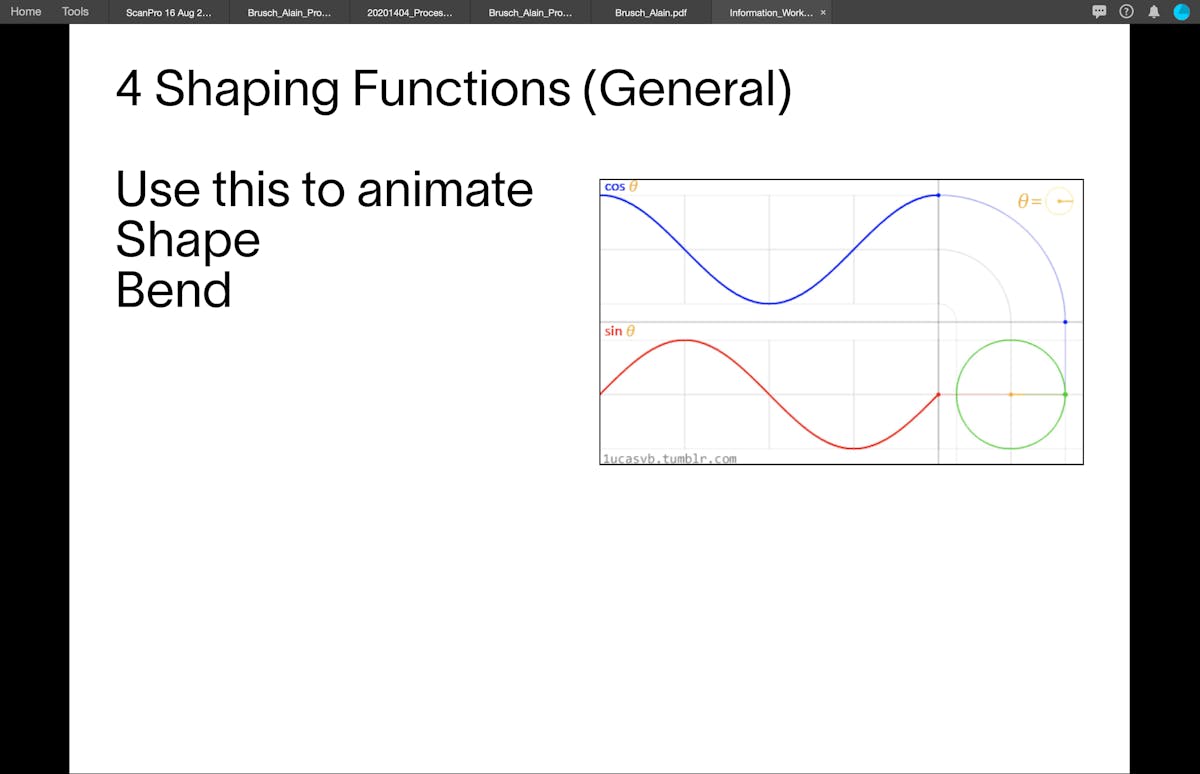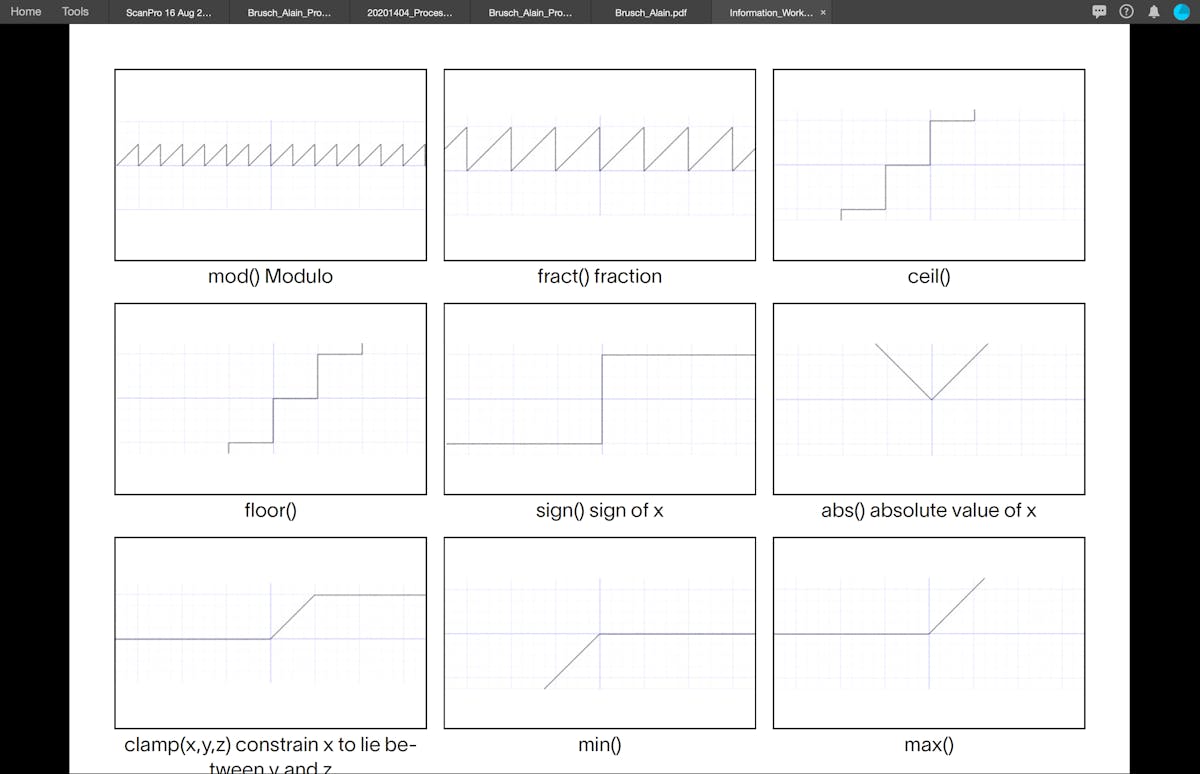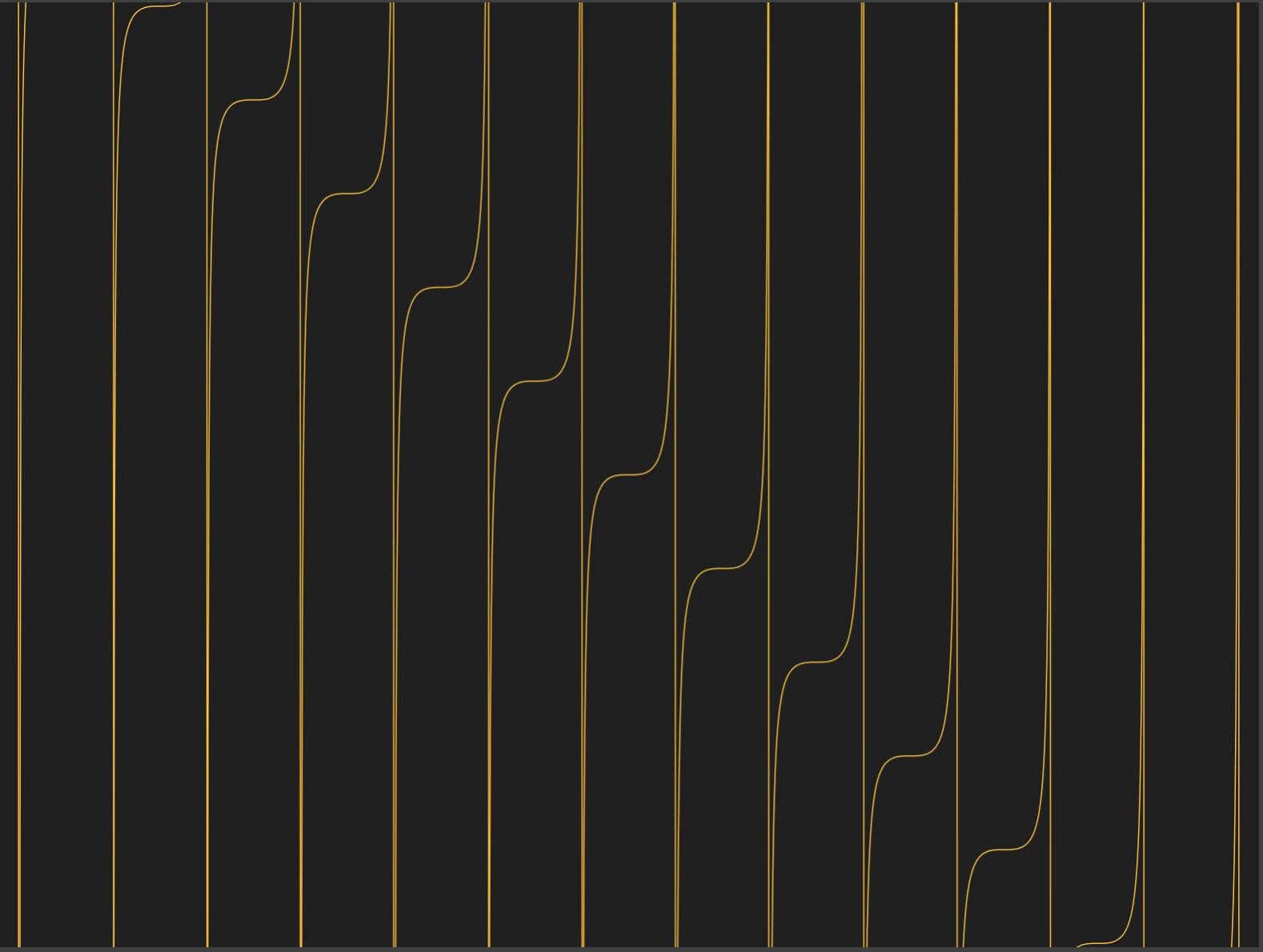
Improvisation in a co-creative and generative design process / Improvisation im generativen Gestaltungsprozess
An understanding of coding and javascript will be beneficial and knowing the very very basics of a P5Live sketch structure is required
In our design process we often start with an idea and define a playground. During the design process, however, interesting coincidences and happy accidents happen. The During the workshop we will be working with code (js) in a free, experimental and intuitive way (or we try) and reflect on outcomes, decisions during the process and the process itself. We'll have a discussion covering or touching the following questions:
What role do those coincidences play? How do we recognise them? What is the decision criteria during such process? What triggers that something interesting happens? How important is improvisation in our design process? How can we force coincidences to happen? Is coincidence an accurate expression, perhaps intuition or improvisation would be more suitable? In what ways can algorithms support us (e.g. a collaborative setting between designer and code)? What are the qualities of a live rendering environment vs generating 200 outcomes and what are the differences? What role does experience, (technical) knowhow, intuition play for improvisation?
Thoughts and keywords:
Playground, Concept, Improvisation, Code, Generative Design, Parameters, Conscious decisions, Predefined conditional statements, Randomness & controlled randomness
Workshop using javascript (P5live environment, thus a basic understanding of coding and js would be beneficial). In the interest of time, there will be a set of precoded rapid prototyping templates/sketches available (based on either typography, forms, video) so we can dive into experiments quickly and observe our design process in efficient ways (participants are free to adjust the code in the templates to their needs or start from scratch to solve a small idea/task).
Personal image and video material can be used (e.g. photography, negative scans, videos, screenrecordings, drawings, scans, personal code snippets)
Potential process and an idea of the workshop’s structure
subject to further changes and timing
1. Introduction (5-10')
2. Tasks and Methods (10-15')
3. Experimental Phase (+-60')
+ I will be available for guidance / individual support with questions, coding and issues if required
a. Quickly dive into an idea to solve a task
b. Define Playground and Parameters (or choose and adjust template)
c. Start experimenting (intuitive, experimental, free -> given a set of methods)
d. Observe what catches your eye (track process by exporting images or record screen for moving imagery)
e. Step back and reflect
f. Reflect, analyse and try to understand what happened
g. Track learnings + save code / sketch!
h. Reapply to concept -> Apply it to your / the concept’s needs
i. What would happen if we use it analog and bring it back to code?
j. Discussion of experience + show and tell
4. Evaluation
5. Apply Assets (in case there is time left)
6. Show and tell + Open discussion (20-30’ about process and the above stated questions)
